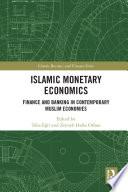
Social Values and Moral Intuitions
The World-Views of "Millennial" Young Adults
Millennials have been stereotyped as both "entitled slackers" and "the next greatest generation." This study uses depth interviews to offer a scholarly and balanced account of young adults’ values and world-views. It investigates their views on a wide range of issues, including religion, the economy, politics, gender, ethnicity, and the digital technologies they’ve grown up with. Based on the findings, it revises current theories about the psychological underpinnings of beliefs, especially about the "moral intuitions" that guide Millennials’ thinking. Examining the values they share and the distinctive views of individuals, this fascinating work will interest researchers and students in psychology and related social sciences.
- ISBN 13 : 135175758X
- ISBN 10 : 9781351757584
- Judul : Social Values and Moral Intuitions
- Sub Judul : The World-Views of "Millennial" Young Adults
- Pengarang : Gary S. Gregg,
- Kategori : Psychology
- Penerbit : Routledge
- Bahasa : en
- Tahun : 2017
- Halaman : 292
- Google Book : https://play.google.com/store/books/details?id=ONsuDwAAQBAJ&source=gbs_api
-
Ketersediaan :
... informed,” and proceeded to give the interviewer a sophisticated briefing about its history, political system and leaders, Shi'i Islam and Sufism, and Iran's struggle over Westernization versus protecting its traditional culture.









